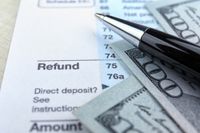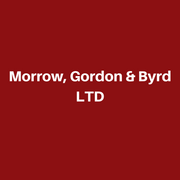Should I Declare Bankruptcy Before or After Filing My Taxes?

If you’re facing an overwhelming amount of debt, making the decision to declare bankruptcy might be relatively easy. Determining precisely when to start the proceedings, on the other hand, could pose a challenge. For example, many debtors wonder if they should file before or after submitting their most recent tax return. While an attorney can evaluate your particular situation to help you decide what to do, it’s wise to consider the following.
If You Want to File Chapter 7
If you’re planning on pursuing chapter 7, ensuring all prior tax returns are up-to-date before filing will streamline the proceedings. The bankruptcy trustee is going to ask for your most recent tax return to confirm various facts of the case. If this return is not for the last tax year, they're going to ask for a valid explanation. They’re also going to require additional documentation to confirm your total earnings.
 If you’re planning on declaring bankruptcy right around tax season, it may be wise to wait until you receive and spend any refunds you’re owed. As long as you spend this money on necessities and not additional assets, it should be exempt from the chapter 7 proceedings.
If you’re planning on declaring bankruptcy right around tax season, it may be wise to wait until you receive and spend any refunds you’re owed. As long as you spend this money on necessities and not additional assets, it should be exempt from the chapter 7 proceedings.
If You Want to File Chapter 13
Generally speaking, petitioners must be up to date on their last four tax returns before declaring chapter 13. That means filing your most recent tax return after declaring bankruptcy isn’t actually an option. Thankfully, chapter 13 can actually help alleviate various kinds of tax debts, so getting caught up on your returns has its benefits. An attorney can evaluate your situation to determine if any outstanding debts owed to the IRS will be dischargeable.
When considering the relationship between bankruptcy and taxes, it’s important to note that chapter 13 requires the implementation of a lengthy payment plan. And for as long as this plan is in effect, all tax refunds you receive will be scrutinized. If you’re not on track to pay off 100% of your debts by the time the plan ends, the bankruptcy trustee may be entitled to any tax refunds because they're considered disposable income.
If you need help discharging debt, turn to the bankruptcy attorneys at Morrow, Gordon & Byrd, Ltd. Representing clients throughout Newark, New Albany, and Westerville, OH, this full-service firm is backed by more than eight decades of experience in the legal field. In addition to bankruptcy law, their knowledgeable lawyers practice family, personal injury, and business law. To learn more about their friendly attorneys, visit their website. To request a consultation, call (740) 345-9611.
About the Business
Have a question? Ask the experts!
Send your question

